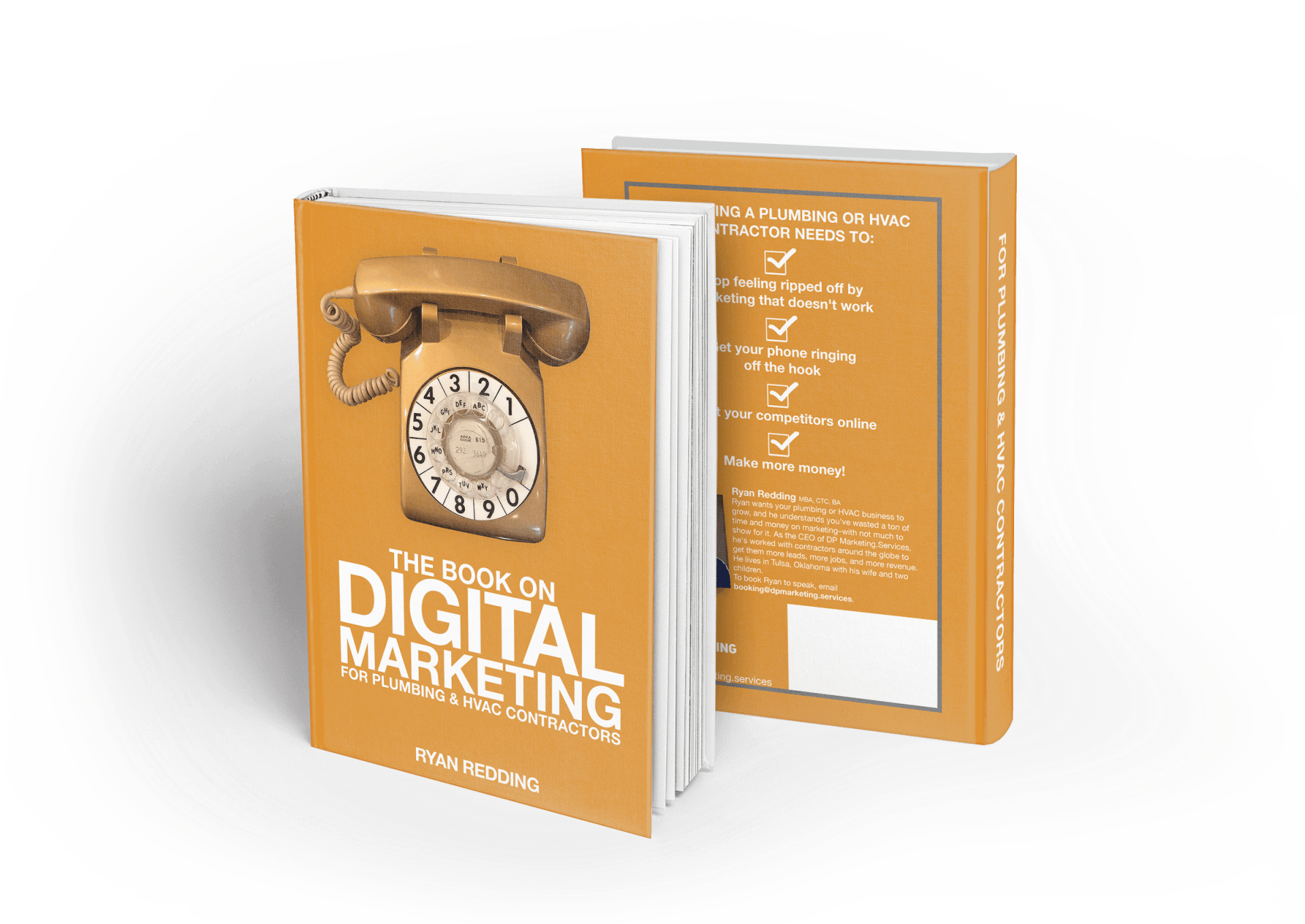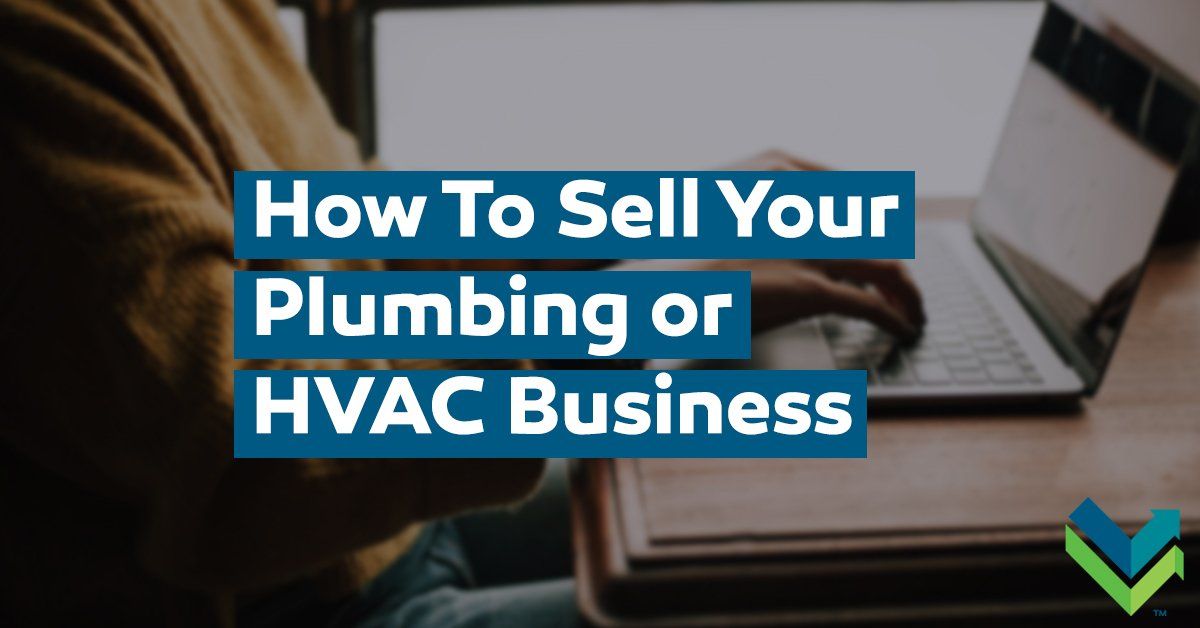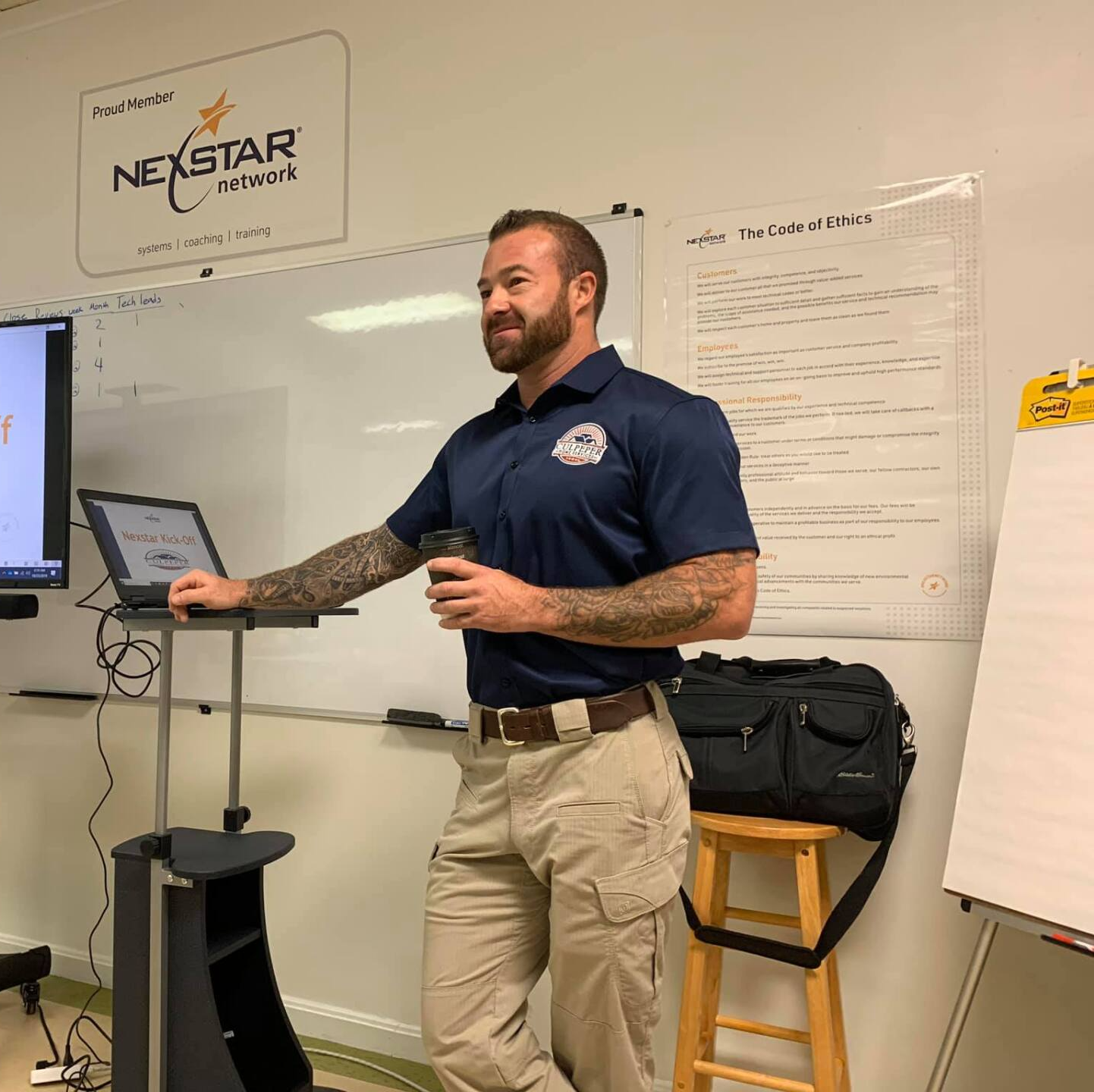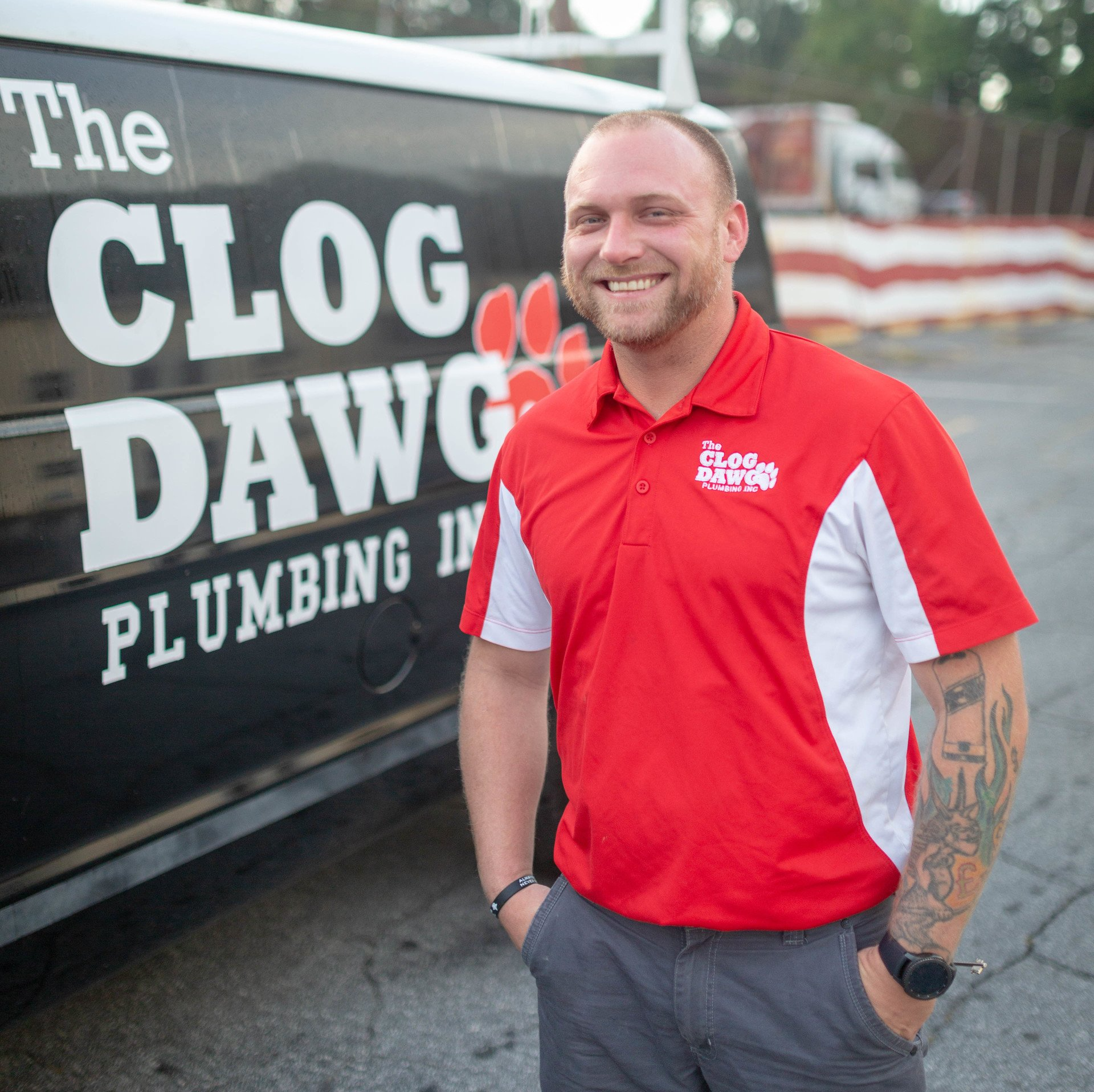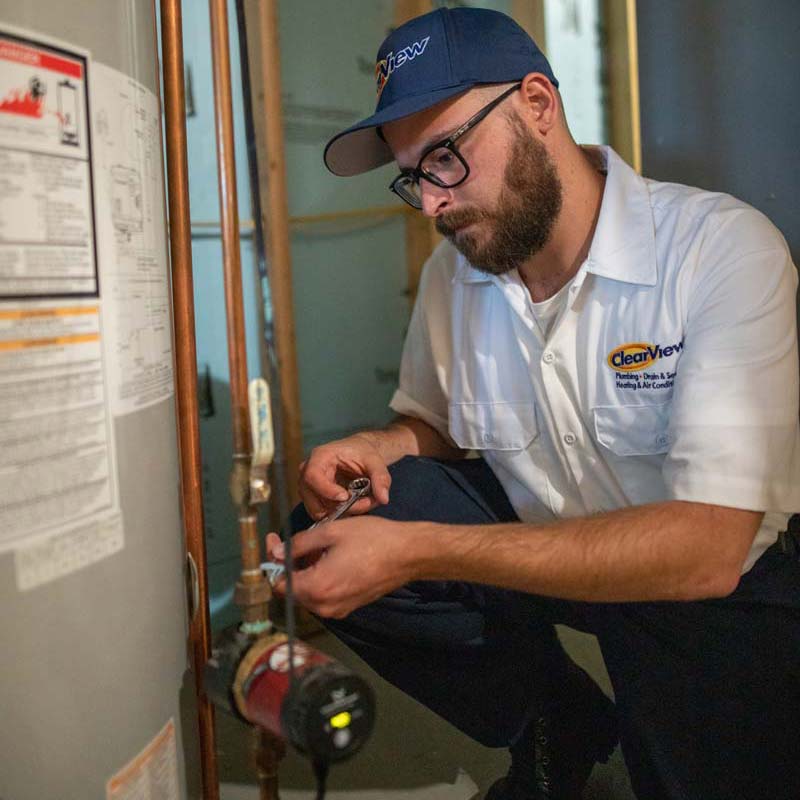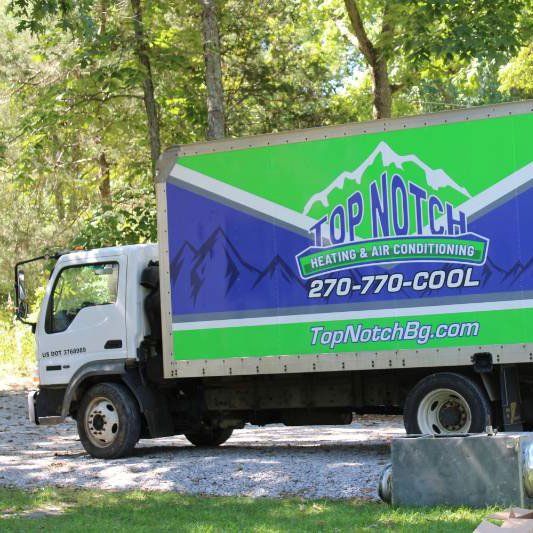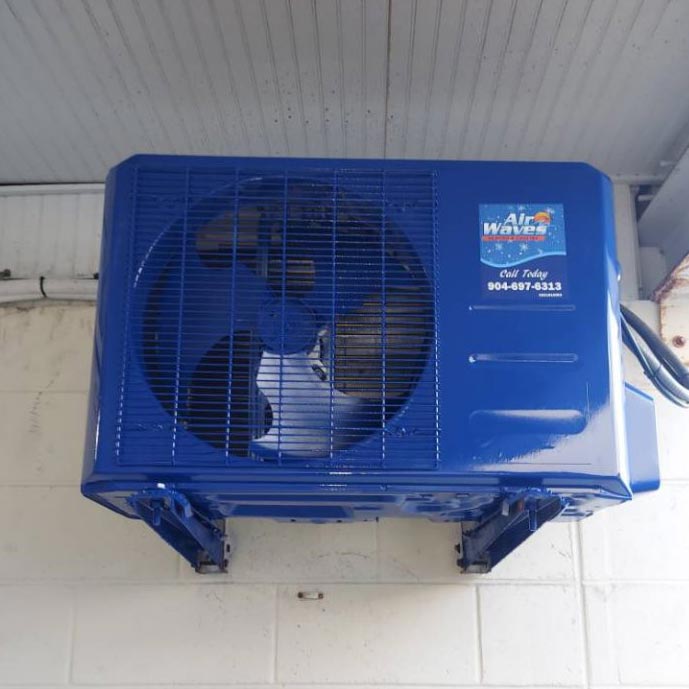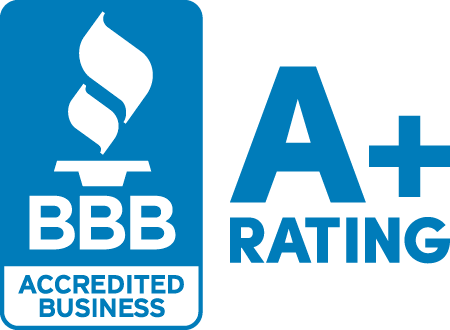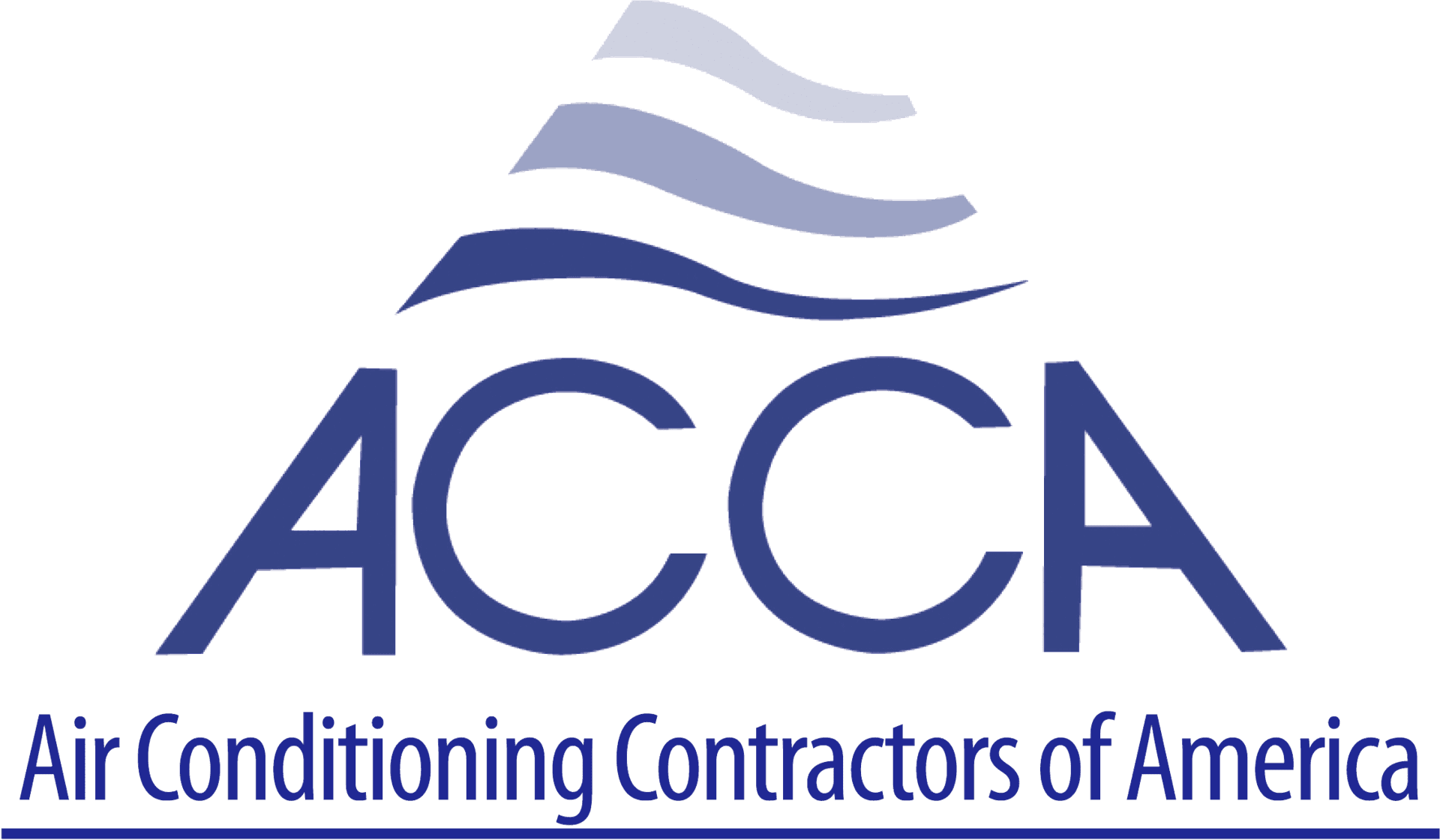Ready to Sell Your Plumbing or HVAC Business? Follow These Steps.
So, you’re ready to permanently park your service truck, eh? Whether you’re dreaming of fruity drinks on a beach or you’re simply ready to move on to whatever’s next, thinking about hanging up your tool belt can seem a bit strange. After all, you’ve worked hard to build your plumbing or HVAC business, and imagining someone else taking over the shop is just… weird.
Uncomfortable as it may feel, you know it’s time to sell—but you don’t want to go about it the wrong way and lose a bunch of money. That’s smart.
Now, here’s what you should know from the get-go: Not many business owners get what they were hoping for out of their sale. In fact, according to Forbes, as few as 20% of businesses ever get purchased
at all. Instead, most of them simply close up and liquify.
I’m just full of good news today, aren’t I?
OK, so let’s turn this around and think positively. Although the odds are certainly stacked against a profitable sale of your business, it’s not an impossibility. To successfully sell your plumbing or HVAC business, follow the following four steps.
Step 1: Prepare Your HVAC or Plumbing Business to Sell
Watch out, kids: This first step is a doozie. You cannot—I repeat, you cannot—decide to sell your business on some random Thursday afternoon and list it the next morning. Well, I mean, you could do that, but if you do, you either won’t sell or you’ll get a fraction of what you could’ve, had you done some planning and preparation. This is especially true if you’re selling just because you’re tired of the whole game.
Listen, very few buyers are interested in sinking ships. So, before you put your business on the market, it needs to be marketable:
- Your daily operations need to be fine-tuned. (After all, it's your company's process & systems that have value- not your equipment and inventory.)
- Your team—from the front office to the techs—must be well-trained and happy. Also, they should know, well in advance, that you’re looking to sell, and you should encourage them to work their tails off for the new owner. (Of course, this is more likely to happen if you include a sales contingency that specifies how long current staff will remain employed after the sale.)
- Your pricing and marketing strategies should be thought-out and effective.
- Your bottom line should be moving in the correct direction.
- Your books need to be in order (inventory lists, contracts, taxes, and so on). 3 years of solid financials are an absolute minimum.
- Your receivables should be in good shape. No one wants to inherit bad debts or the type of customers who create them.
- You need to have a diverse business model with multiple revenue streams.
- You ought to offer a five-year business plan—a blueprint the next owner can follow to improve their chances of success—particularly if they’re not an HVAC or plumbing pro themselves. (See Step 2 for more on that.)
- You shouldn’t have any pending litigation.
- You should not hit the golf course the moment your business is listed. Keep working hard so your business stays profitable and, therefore, interesting to potential buyers. Like I said, this step is a doozie. It takes loads of time and energy—and that’s admittedly tough to do when you’re ready to call it quits.
Step 2: Have an Exit Strategy
Potential buyers want to know how you plan to leave your business. I know that sounds strange, but there’s way more to handing over the keys than… handing over the keys. You’ll need to think through several questions, such as:
- Will you notify your current clients and leads of the change in ownership?
- Will there be some sort of transition period, or will you disappear the day your buyer hands you a check? (Most buyers will appreciate having you stick around for a bit.)
- Are your insurance policies and contracts in good order? If not, what needs to happen to get them there?
- Do you want to guarantee the new owner keeps your current staff ? If so, for how long?
- Who will be your successor be?
I’ll say it this way: Investors are interested in making money. They’re not necessarily interested in working the business that’s making them the money. So don’t limit your field of potential buyers to plumbing or HVAC pros. You could end up selling to a first-time investor, a competitor, an entrepreneur, or even a private equity company. (Heck, some of the biggest acquisitions of HVAC & plumbing companies of the past 15 years has been to big-money-Wall-Street-types.)
The point is this: Train someone to take your place, so your business is a good investment for anyone . It’s fine—at first—to grow your business using your personal expertise, personality, charisma, experience, and so on. But now you’re leaving, and your buyer obviously knows that. You need to be able to point to whoever’s taking your seat—in every aspect of your business—and show how you’ve prepared them to make the new owner big money.
Step 3: Right-Size Your Expectations
When it comes to selling your plumbing or HVAC business, you’ll need to have reasonable expectations in two areas: money and time.
Money: How much is your HVAC or plumbing business actually worth?
Most HVAC and plumbing business owners dream of making bank when they sell. Few have any idea what their business is actually worth. Buyers will critically evaluate two values as they consider your business: Your current bottom line and your future potential bottom line.
Your current bottom line is easy enough (for an accountant) to determine, and it even has its own acronym: EBITDA, or earnings before interest, taxes, depreciation, and amortization. Buyers will typically base your business’ value on a multiple of EBITDA after certain expenses are added back in.
The other important data point investors explore is potential value, and this gets back to the whole idea of making sure your business is marketable. For example, buyers are going to look closely at how many leads you’re getting. Even if you aren’t doing a great job converting those leads, a savvy investor may have strategies to fix that problem. But first they need to know there’s some opportunity there to begin with.
So, what can you reasonably expect to get for your business?
Well, it depends. There are literally dozens
of valuations methods that can be used to determine your business's value. But according to the National Federation of Independent Business, “s mall businesses are typically worth three to six times their annual cash flow.” To get a realistic idea of what your plumbing or HVAC company’s worth, check out BizBuySell’s Business Valuation Report, or seek a professional appraisal. (Also, in the United States, the SBA has Small Business Development Centers in your area that can help you get an approximation on your valuation. Click here to find the closest SBDC to you.)
Keep in mind, too, the value of your business is entirely negotiated. Valuation methods can have huge variance in what they say your business is worth- as long as you can find a buyer that you can negotiate a price that you both think is fair, that's the goal.
By the way, don’t forget about the cost
of selling.
Just like selling your home, if you involve a broker (and you should), you can expect to pay between 4% and 12% of the sale price.
Time: How long will it take to sell your HVAC or plumbing business?
It’s probably going to take longer to sell your business than you want it to. If your company, financials and exit plan are in great shape, plan for a 9- to 12-month process at a minimum.
Step 4: Get Help
You’re already busy running your HVAC or plumbing shop, and you’re about to be really busy preparing to put it on the market. You do not have time to do all the things involved in actually selling the thing.
You need a business broker. Yep, I know hiring help is going to cut into your profit, but you will sell faster, for more money, if you involve a professional.
A business broker will do all the heavy lifting for you:
- Appraise your business. You’ll know what your shop’s actually worth, and your potential buyers will feel confident that your sticker price is in the right ballpark.
- Develop a prospectus. Business brokers know all the questions investors will ask, so they proactively create a multi-page document with all the answers.
- Market your offering. Once your prospectus is complete, a business broker will release it to their database of buyers/investors. This is a critical benefit. You likely have no earthly idea who’s hoping to buy a plumbing or HVAC business, and this isn’t the sort of thing you put on Craigslist or Facebook Marketplace.
- Manage inquiries. When questions start rolling in about your business, your broker will handle all of them. When they’ve found a viable buyer, then you can have a conversation. Until then, you don’t have to field any calls or answer any questions. That’s the broker’s job.
- Review letter of intent. It would be nice if interested investors would just hand you a check, but that’s not the way the business world works. Instead, the buyer will draw up a letter of intent that outlines the terms of their offer.
- Help you select your buyer. With any luck, you’ll receive multiple letters of intent. Your broker will help you sort through them to decide which buyer is the best fit for your business.
- Navigate the due diligence process. Selling a business involves a gazillion moving parts and a ridiculous amount of paperwork. A broker will keep everything in motion and will help respond to buyers’ ongoing questions about your accounting and data.
- Verify the final offer. When your buyer makes their final offer, a broker will review every word and negotiate until you’re happy with the results.
- Assist in setting up an escrow account. Even after you accept a buyer’s offer, they still don’t hand you a check. Instead, their goes into an escrow account and will only be released to you after you transfer everything to the new owner. At that point, you’ll finally get your money.
Do you need to grow before you can sell?
At Levergy, we aren’t business brokers. We are, however, really great at helping plumbing and HVAC shops 10x their revenue—quickly. If you need to improve your marketing strategy so you can attract a buyer for your business, we can help. Get a quote today .
Was This Helpful?
Sign up here, and we'll automatically email you as we publish new articles that you may find useful.
Was This Helpful?
As Seen In:
Is your website helping or hurting your SEO efforts? Find out now for free.
We've got give-a-damn for days.
When my team talks with new clients, we hear a ton of frustration, overwhelm, and general fed-up-ness.
I'm guessing you can relate.
Maybe you've been trying to figure out all this marketing stuff on your own OR you've handed a crap-ton of money to an "expert" for no apparent reason.
Your phones still aren't ringing like they should.
Your advertising still isn't performing like you expected.
Your website's still not ranking or converting like it needs to.
You can't figure out why... and/or your current marketing "partner" isn't 'fessing up.
We think you deserve better.

Ryan Redding
CEO Levergy
Author of The Book on Digital Marketing for Plumbing and HVAC Contractors
Here's how we'll get you more plumbing, HVAC, electrical, garage door, roofing, or other home service leads:

Tell us what's keeping you up at night.
Let's get on a call so you can tell us where your business is and where you want to go. We'll follow-up with a free, comprehensive assessment and actionable tips.

We'll help you fix it.
If you like what you see so far, we'll put together a customized plan with transparent, flat-rate pricing—and then get to work growing your business.

So you can breathe easy.
Have peace of mind knowing you have a true partner on your side who cares about your success as much as you do.
What you get is important.
How you're treated is what sets us apart.
Culpeper Home Services
"... they always go above and beyond the call of duty. I'm impressed with their work ethic, loyalty, and integrity."
- Russell Furr, President
The Clog Dawg
"[Levergy] understood my specific needs and got the work done—bypassing all the unnecessary nonsense. And now business is booming!"
- Steven Douglass, President
Your mileage may vary.
Better results are here.
Discover how to stop wasting money on marketing that doesn't work, and make your phone ring off the hook.
